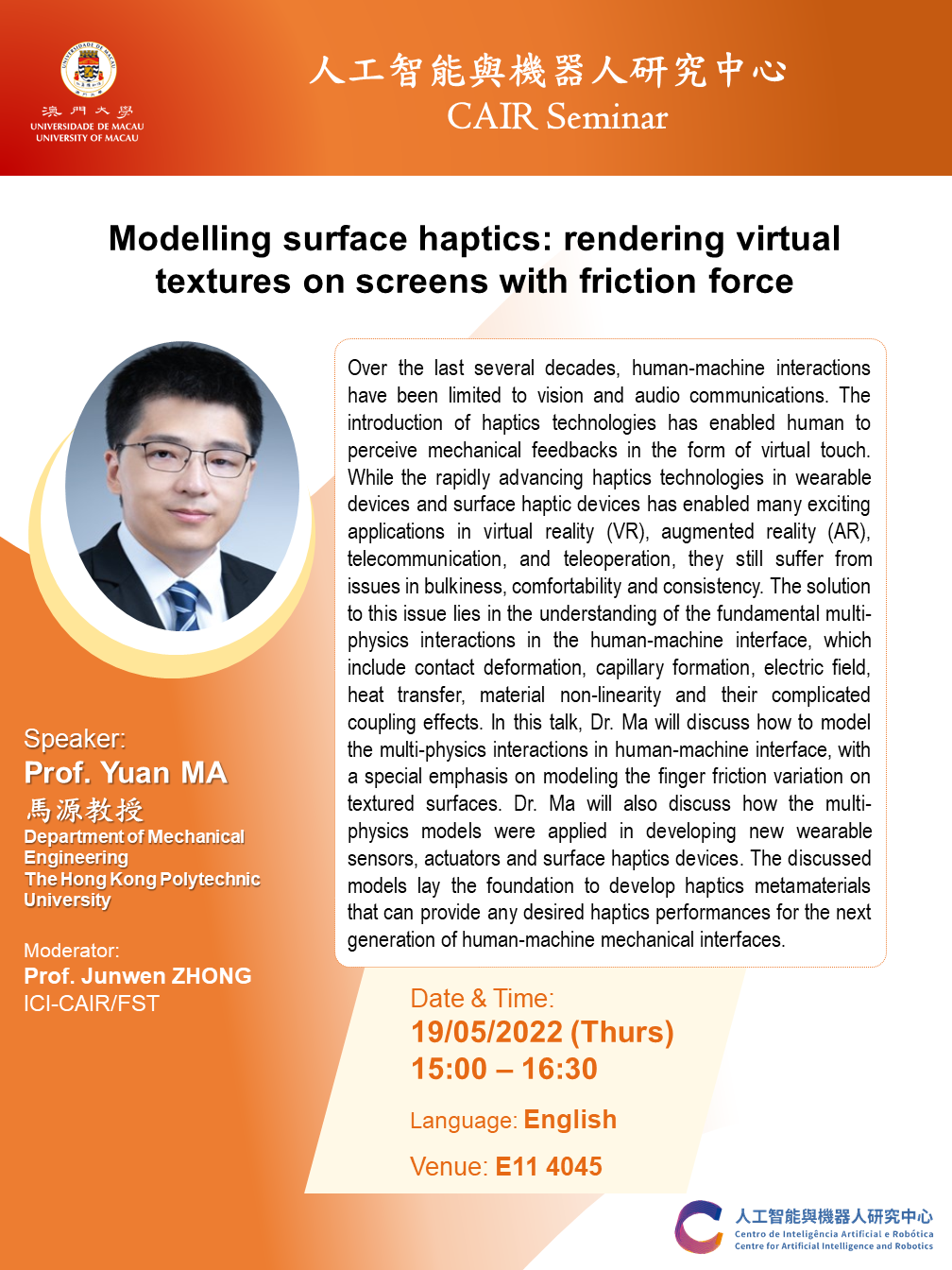Abstract:
Over the last several decades, human-machine interactions have been limited to vision and audio communications. The introduction of haptics technologies has enabled human to perceive mechanical feedbacks in the form of virtual touch. While the rapidly advancing haptics technologies in wearable devices and surface haptic devices has enabled many exciting applications in virtual reality (VR), augmented reality (AR), telecommunication, and teleoperation, they still suffer from issues in bulkiness, comfortability and consistency. The solution to this issue lies in the understanding of the fundamental multi-physics interactions in the human-machine interface, which include contact deformation, capillary formation, electric field, heat transfer, material non-linearity and their complicated coupling effects. In this talk, Dr. Ma will discuss how to model the multi-physics interactions in human-machine interface, with a special emphasis on modeling the finger friction variation on textured surfaces. Dr. Ma will also discuss how the multi-physics models were applied in developing new wearable sensors, actuators and surface haptics devices. The discussed models lay the foundation to develop haptics metamaterials that can provide any desired haptics performances for the next generation of human-machine mechanical interfaces.
Biography:
Yuan Ma received his Ph.D. degree in mechanical engineering from the University of California, Berkeley in 2018. Prior to that, he received his bachelor’s and M.S. degrees in mechanical engineering and Materials science from Tsinghua University, Beijing in 2011 and 2013, respectively. Prior to joining the Department of Mechanical Engineering at the Hong Kong Polytechnic University as an Assistant Professor in 2021, he worked as a postdoctoral researcher at the Texas A&M University. His research interests include micro/nano scale mechanical and tribological behavior of human-machine interfaces, haptics metamaterials development, wearable devices with piezoelectret materials, and application of artificial intelligence in human-machine interactions. He has authored 12 peer-reviewed journal papers in Science Robotics, Advanced Materials, ACS Nano, ACS applied materials and interfaces, Advanced Functional Materials, Applied Physics Letters, IEEE transaction on haptics, and IEEE transaction on magnetics.

